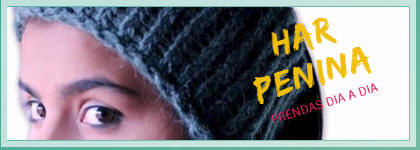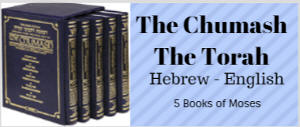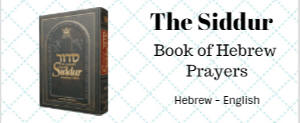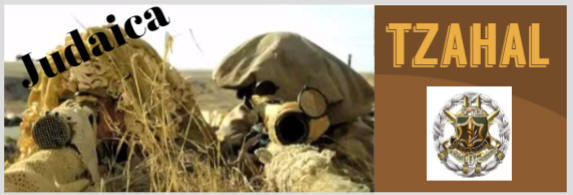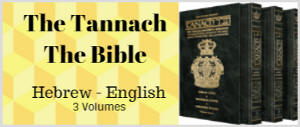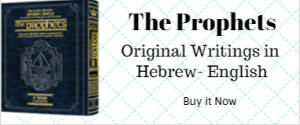|
Parashas Tetzaveh - 5778 - The
" Kohanim," Rabbi Dr. Natan
Slifkin,
Charles Darwin
and the Platypus
Parashas
Tetzaveh focuses, to a large
extent, on the " Kohanim," the
Priests, descendants of Aharon.
Addressing Moshe, HaShem says,
" Bring near to yourself Aharon
your brother, and his sons with
him, from among the Children of
Israel - Aharon, Nadav and
Avihu, Elazar and Itamar, the
sons of Aharon - to minister to
Me." (Shemos 28:1) And that will
have a profound effect on the
nature of your People - " And you
will be for Me a Kingdom of
Priests and a Holy Nation."
(Shemos 19:6)
In Parashas
Emor, we find, " They shall be
holy to their G-d" (VaYikra
21:6) - on which the Ramban
comments, " The Holiness is their
separateness, meaning that even
with respect to those items
which are permitted to most
Jews, the " Kohanim" should
maintain a certain separateness.
For example, they should stay
away from the impurity of the
dead and, in the area of
marriage, they should avoid
marrying women who, while being
Jewish, are not fit for them in
terms of purity and in clean
characteristics, and the reason
is that I am HaShem, Who makes
you holy. Now, HaShem is either
speaking here directly with the
" Kohanim," as in fact the
Parashah begins, " Speak to the
'Kohanim,' " or the meaning is
" I am HaShem Who makes all of
you holy, the " Kohanim" and also
the rest of the People; and the
reason is that by virtue of the
fact that he sacrifices the
" Bread of G-d," Holiness will be
yours, for through his actions,
I sanctify all of you, and allow
My Divine Presence to dwell in
your Temple." In fact, Holiness
will be the defining
characteristic of the Jewish
People.
The " Sefas
Emes" writes, " These two
righteous individuals were
prepared to be servants in the
Temple, as it is written, " Moshe
and Aharon among His 'Kohanim' "
for the " Kohen" must be totally
negated with respect to the One,
Blessed be His Name, as it is
written with respect to them,
" And who are we?" and another
verse writes concerning Aharon,
" And Aharon, who is he?" for
they had totally negated
themselves, the only distinction
being that Moshe Rabbeinu was
humble by virtue of being a
completely righteous person, and
Aharon came to total
self-negation by virtue of being
a Master of Repentance."
(VaYikra Shemini 645)
In the Jewish
Press of February 18, 2018,
there appears a fascinating
essay by Rabbi Dr. Natan
Slifkin, entitled, " The Paradox
of the Platypus." " ...Three years
ago, I opened the Biblical
Museum of Natural History,
featuring an extraordinary array
of both inanimate and live
exhibits...but the single most
extraordinary creature I have
ever had the pleasure of meeting
is the Australian duck-billed
platypus. How could a furry
animal with four legs have a
beak and webbed claws like those
of a duck? The early naturalists
were amazed before they found
out something even more
extraordinary - that this mammal
lays eggs! Such a creature was a
paradox and was given the name
Ornithorhynchus Paradoxicus -
the 'paradoxical bird-snout.'
Upon first sight, I pronounced
the blessing the Talmud
prescribes for seeing wondrous
creatures, 'Baruch meshanah
habriyot' - 'Blessed is the One
Who makes extraordinary
creatures.' "
" In 1836,
Darwin was on his voyage in
Australia when he came across
several platypuses. He wrote in
his diary that this most
extraordinary animal, so
different from everything in the
rest of the world, had given him
cause for theological concern.
Surely two distinct Creators
must have been at work at the
same time. His observation of an
Australian ant convinced him
otherwise - 'The one hand had
surely worked throughout the
universe.' "
[And now, we
speak about another unique
creature: above, spiritual;
below, physical, with the same
Creator, and, as we'll see
below, the physical can serve as
a metaphor for the spiritual,
though they are separated by an
infinity of levels.] " Platypuses
are not primitive. Rather, they
combine certain very ancient
characteristics - laying eggs, a
single cloaca - with some very
advanced characteristics, such
as electroreceptors. Indeed,
using
the eitz chaim
metaphor, the platypus is a
worthy metaphor for Judaism
itself. The fact that Judaism
separated itself from the rest
of the world many millennia ago
means that the spiritual ideas
of the rest of the world were
basically primitive, and Judaism
has continued to progress over
thousands of years. It
delicately and harmoniously
combines ancient but meaningful
traits with advanced
accomplishments."
L'Illuy Nishmas
beni, Aharon Baruch Mordechai
ben Pinchas Menachem
|

